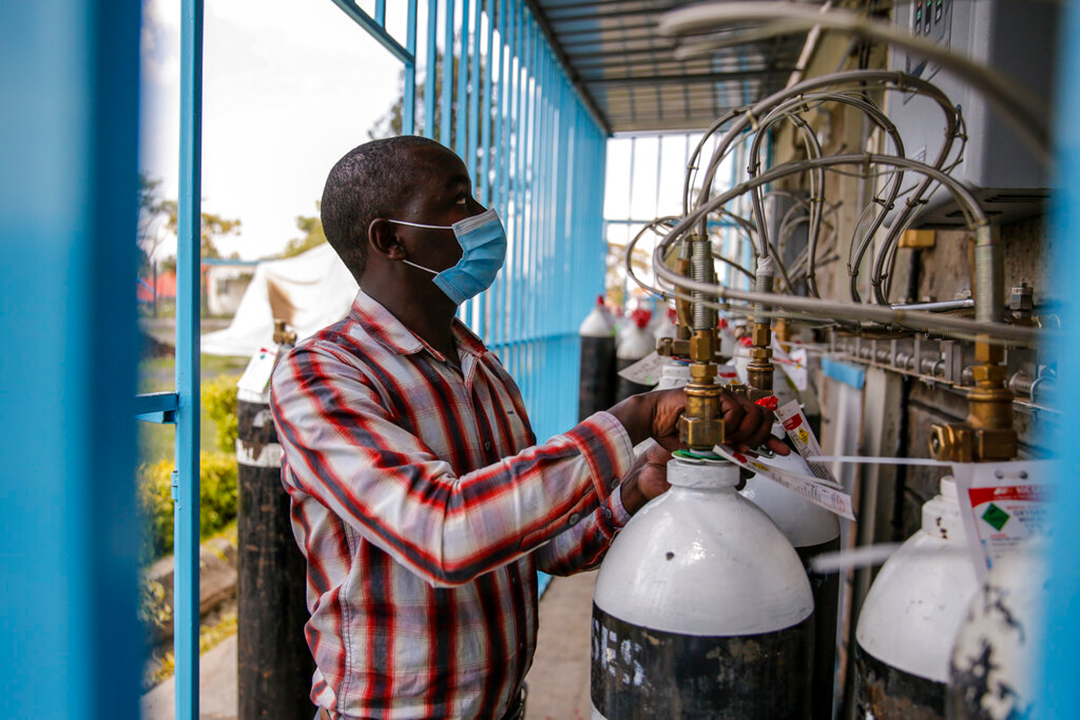Third Wave of COVID-19 Infections Depletes Kenya’s Oxygen Supply
ADF STAFF
Kenyan hospitals are running out of oxygen amid a deadly third wave of COVID-19 infections.
During a televised briefing March 31, Kenyan Health Minister Mutahi Kagwe appealed to people with oxygen cylinders at home to return them to health facilities if they were not needed.
Kagwe said Kenya’s oxygen demand had increased from 410 tons per month last year to about 880 tons per month.
“The situation at the moment is such that the industry is completely stretched,” Kagwe said. “We are appealing to anybody who is holding oxygen cylinders to immediately return them so that the companies can use them to supply oxygen to our hospitals.”
At the time, Kenya had a 26.6% positivity rate among those tested for the virus, Kenyan news outlet KBC Channel 1 reported. There were 136 COVID-19 patients being treated in intensive care units (ICU); 36 of those were on ventilators, and 91 were on supplemental oxygen.
The public plea for oxygen came as Kenya confronted a third wave of infections fueled by a coronavirus strain unique to the country. Lack of funding hampered health officials’ efforts to combat the more aggressive and lethal variant, Kenyan newspaper The Daily Nation reported.
“This is not just about Kenyans lowering their guards,” Omu Anzala, a virologist and a member of the national COVID-19 task force, told the newspaper. “We have been here before, but the numbers are scary. Only understanding the virus will make us act. We have to allocate money for surveillance.”
Anzala said it was possible that even COVID-19 survivors lacked the immunity to fight the new strain. Health officials worried that the surge in infections and deaths would overrun the country’s health system because hospitals also faced a shortage of ICU beds.
By mid-April, some critically ill patients at the country’s largest hospital, Kenyatta National Hospital in Nairobi, only got an ICU bed after another patient died, a doctor there told The Associated Press.
“The priority now is how to cope with the surge in very sick patients needing emergency ICU care as patients are forced to queue for ICU beds,” Dr. Andrew Suleh, a consultant physician, told The Daily Nation. “Unless this is addressed urgently, we shall lose more lives.”
Increased lockdown measures to control the outbreak were expected to last until at least May.
Kenya received more than 1 million doses of the AstraZeneca vaccine through the global COVAX program in early March. The first people to receive shots included front-line health care workers, teachers and security personnel. Kenyan officials plan to inoculate 16 million people by June 2022.
“There is a bit of fear in some people” over COVID-19 vaccines, Jean Koech, a referral nurse in Kenya, told France 24. “We are trying to educate them on the [side effects] and what to expect, and they are OK with it.”


Comments are closed.